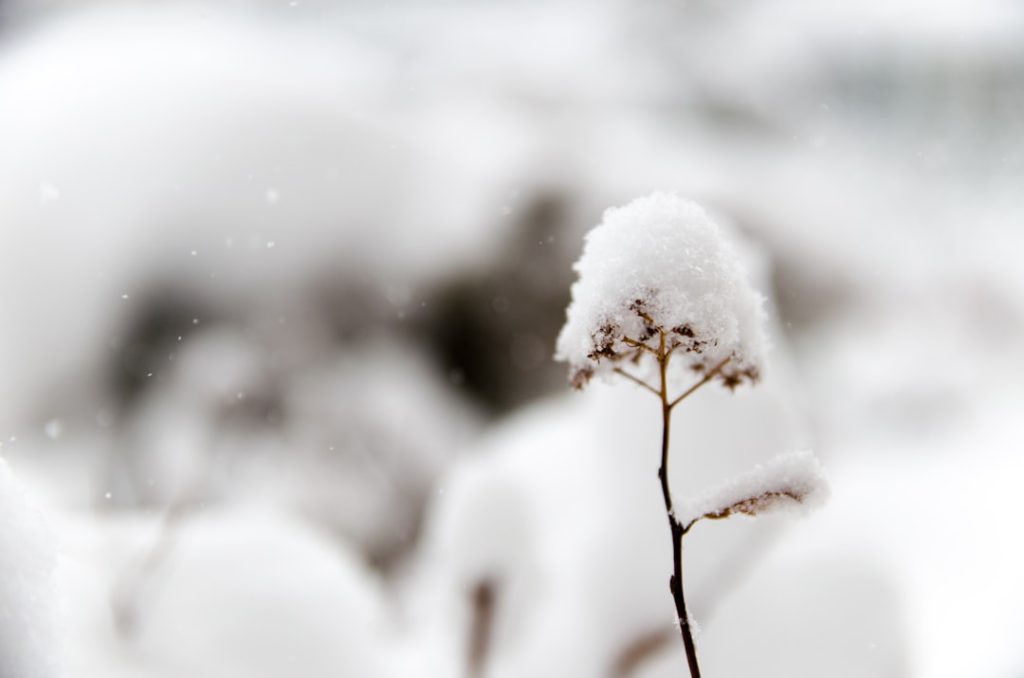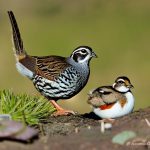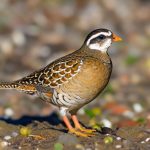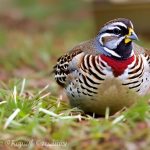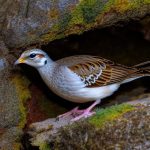Quail are small, ground-dwelling birds that are found in a variety of habitats across the United States. During the winter months, quail face a number of challenges as they try to survive in cold and often harsh conditions. Understanding the specific needs of quail during the winter is essential for anyone who wants to help these birds thrive during the colder months.
Quail require shelter, access to water, adequate nutrition, and protection from predators in order to survive the winter. They are particularly vulnerable to extreme cold and wet conditions, so providing them with the right resources is crucial for their survival. By understanding and addressing these needs, you can help ensure that quail populations remain healthy and stable throughout the winter months.
Key Takeaways
- Quail need shelter to protect them from harsh winter weather and predators
- Providing access to fresh water is crucial for quail survival in cold weather
- Offering high-energy foods like seeds and grains can help quail maintain their body temperature
- Protecting quail from predators is essential for their safety during the winter months
- Regularly monitoring quail health and behavior can help identify any issues early on
Providing Shelter for Quail in Winter
Shelter is one of the most important factors in helping quail survive the winter. During cold weather, quail need protection from wind, rain, and snow in order to stay warm and dry. Providing shelter can be as simple as leaving areas of dense vegetation or brush piles in your yard or on your property. These areas can provide quail with protection from the elements and also serve as hiding spots from predators.
Another option for providing shelter for quail is to build or install quail shelters or roosting boxes. These structures can provide quail with a safe and warm place to rest and seek refuge from the cold. When building or installing shelters for quail, it’s important to place them in areas that are easily accessible to the birds and away from potential predators. By providing adequate shelter, you can help quail stay warm and protected during the winter months.
Ensuring Access to Water in Cold Weather
Access to water is essential for quail, especially during the winter when natural water sources may freeze over. Quail need water not only for drinking, but also for bathing and preening their feathers. In cold weather, it’s important to ensure that quail have access to unfrozen water at all times.
One way to provide water for quail in winter is by using heated birdbaths or waterers. These devices are designed to prevent water from freezing, ensuring that quail have access to water even in the coldest temperatures. Another option is to regularly check and replace water sources to ensure that they do not freeze over. By providing access to water, you can help quail stay hydrated and healthy throughout the winter.
Providing Adequate Nutrition for Quail in Winter
Quail require a varied diet in order to stay healthy, especially during the winter when food sources may be scarce. Providing adequate nutrition for quail is essential for their survival during the colder months. Quail are omnivorous birds that feed on a variety of seeds, grains, insects, and small plants. During the winter, it’s important to provide quail with a diverse range of food sources to ensure that they are getting the nutrients they need.
One way to provide nutrition for quail in winter is by offering them a mix of birdseed, cracked corn, and millet. These foods are high in energy and can help quail maintain their body temperature during cold weather. Additionally, planting cover crops such as clover, sorghum, or millet can provide quail with natural food sources throughout the winter. By providing a diverse range of food options, you can help quail maintain their health and energy levels during the winter months.
Protecting Quail from Predators in Winter
Predators pose a significant threat to quail, especially during the winter when food sources may be limited. Protecting quail from predators is essential for their survival during the colder months. One way to protect quail from predators is by creating habitat that provides cover and hiding spots for the birds. Dense vegetation, brush piles, and shrubs can all provide quail with places to hide from predators.
Another option for protecting quail from predators is by installing predator guards or fencing around their habitat. These barriers can help deter predators such as cats, dogs, raccoons, and birds of prey from accessing areas where quail are present. By taking steps to protect quail from predators, you can help ensure that they remain safe and secure throughout the winter.
Monitoring Quail Health in Cold Weather

Monitoring the health of quail is important during the winter months when they may be more vulnerable to illness and disease. Cold weather can weaken quail and make them more susceptible to health issues, so it’s important to keep an eye on their well-being. Signs of poor health in quail can include lethargy, fluffed feathers, decreased activity, and changes in eating or drinking habits.
If you notice any signs of illness or distress in quail, it’s important to take action quickly to address the issue. This may involve providing supplemental food and water, seeking veterinary care for sick or injured birds, or making adjustments to their habitat to improve their comfort and safety. By monitoring quail health in cold weather, you can help ensure that they remain healthy and resilient throughout the winter.
Tips for Keeping Quail Warm in Winter
In addition to providing shelter, water, nutrition, and protection from predators, there are a few additional tips for keeping quail warm during the winter months. One tip is to avoid disturbing quail habitats as much as possible during cold weather. This can help minimize stress on the birds and allow them to conserve energy for staying warm.
Another tip is to avoid using pesticides or chemicals near areas where quail are present. These substances can be harmful to quail and may affect their ability to survive in cold weather. Additionally, providing supplemental heat sources such as heated roosting boxes or heat lamps can help keep quail warm during extreme cold spells.
By following these tips and taking steps to address the specific needs of quail during the winter, you can help ensure that these birds remain healthy and resilient throughout the colder months. With proper care and attention, you can make a positive impact on quail populations and contribute to their overall well-being during the winter season.
When it comes to keeping quail outside in winter, having a suitable coop is essential for their well-being. A well-designed coop can provide the necessary protection from harsh weather conditions and predators. If you’re looking for ideas on coop designs and options, check out this informative article on what kind of coop is best for chickens. It offers valuable insights that can be adapted for quail housing as well.
FAQs
What are some important considerations for keeping quail outside in winter?
Some important considerations for keeping quail outside in winter include providing adequate shelter, protection from predators, access to fresh water that doesn’t freeze, and a balanced diet to help them stay warm.
What type of shelter is best for quail in winter?
A well-insulated and draft-free shelter is best for quail in winter. This can include a sturdy coop with proper ventilation and bedding to keep them warm and dry.
How can I protect my quail from predators in winter?
To protect quail from predators in winter, it’s important to reinforce the coop with secure fencing, locks, and predator-proofing measures. Additionally, consider using motion-activated lights or alarms to deter predators.
How can I ensure my quail have access to fresh water in winter?
To ensure quail have access to fresh water in winter, consider using heated waterers or regularly checking and replacing water to prevent freezing. It’s important for quail to stay hydrated, especially in cold weather.
What should I feed my quail in winter to help them stay warm?
In winter, it’s important to provide quail with a balanced diet that includes high-protein feed and additional sources of energy, such as grains and seeds, to help them stay warm and maintain their energy levels.
Meet Walter, the feathered-friend fanatic of Florida! Nestled in the sunshine state, Walter struts through life with his feathered companions, clucking his way to happiness. With a coop that’s fancier than a five-star hotel, he’s the Don Juan of the chicken world. When he’s not teaching his hens to do the cha-cha, you’ll find him in a heated debate with his prized rooster, Sir Clucks-a-Lot. Walter’s poultry passion is no yolk; he’s the sunny-side-up guy you never knew you needed in your flock of friends!

